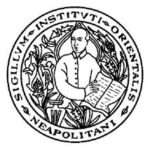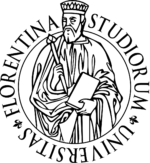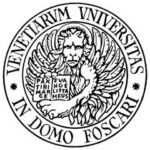
Roots of Peristan
An International Interdisciplinary Conference
on the Pre-Islamic Cultures of the Hindukush-Karakorum
An International Interdisciplinary Conference
on the Pre-Islamic Cultures of the Hindukush-Karakorum

Peristan is the conventional name we use to refer to the pre-Islamic past of the vast mountain region ranging of the Hindukush/Karakorum, which was once the home to a congeries of culturally and linguistically diverse, non-literate societies, that were styled “Kafir” by their Muslim neighbours. While all the pre-Islamic cultures of this region are now vanished, with the only exception of the Kalasha, a fuller diachronic investigation of their past conditions, variations and developments has by now been made possible by the recent progresses in scientific knowledge of the subject. The “Roots of Peristan” Conference will convene in Rome for this purpose scholars from a variety of disciplines: anthropologists, historians, archaeologists, linguists, and cultural historians. The Conference is organized by ISMEO and its Scientific Committee is chaired by Prof. Adriano Rossi, President of ISMEO and former Dean of Istituto Orientale of Naples, with the Honorary Presidency of Prof. Em. Georg Budruss, University of Mainz.
Dates
The Conference will be held in presence and not online, as soon as the Covid19 situation will allow it. At present, the proposed dates are 27 to 29 October, 2021. Unfortunately it will take some time before these dates can be definitively confirmed.
Endorsed by:

Università degli Studi di Napoli “L’Orientale”

Università degli Studi
di Firenze

Università “Ca’ Foscari”
di Venezia
 Scientific Committee
Scientific Committee
Elena Bashir
Augusto Cacopardo
Stefano Pellò
Michele Bernardini
Max Klimburg
Irmtraud Stellrecht
Alberto Cacopardo
Luca Olivieri
Klaus Peter Zoller
Conveners
Alberto Cacopardo
Augusto Cacopardo
 List of Participants (provisional)
List of Participants (provisional)
• Augusto Cacopardo, (Florence)
• Jürgen Wasim Frembgen, (Munich) - Pre-Islamic Symbolism in the Material Culture of Nager and Hunza
• Max Klimburg, (Vienna) - Conflict and coexistence in Kafiristan. The past tripartite polytheistic cultures in the Hindukush (in present Nuristan)
• Ilaria Scerrato, (Rome) - Some observations about zoomorphic signs in the graveyards of Swat Kohistan and Indus Kohistan
• Irmtraud Stellrecht, (Heidelberg) - Celebrating male great deeds and female chastity: remembering feasts of merit in pre-colonial Hunza today
• Anton Kogan, (Moscow) - The Linguistic Evidence on the Ethnic Composition of pre-Tibetan Ladakh and Baltistan: A.H. Francke's 'Dardic' Hypothesis Revisited
• John Mock, (California)
• Stefano Pellò, (Venice) - Mapping the Persian Poetic Territories of Kafiristan
• Sviatoslav Kaverin, (Moscow), Sergey Yatsenko, (Moscow) - Traditional costume of the Eastern Hindukush area: Some problems of its origin and modification against the background of ancient and modern cultures
• Jason Neelis, (Ontario, Canada) - From Khaśarājya to Dardistan: Steps towards a regional macrohistory in the 1st millennium CE
• Luca Olivieri, (Venice), Massimo Vidale, (Rome), Elisa Iori, (Erfurt) - The stratigraphic sequence of Medieval Bir-kot (Swat). Implications on the cultural history of Peristan
• Ruth Young, Leicester, (UK), Abdul Samat, (Peshawar) - Pre-Islamic Archaeology and Heritage in Chitral
• David Nelson, (Albuquerque) - Some Vedic - Kalasha Connections
• Jadwiga Pstrusińska, (Cracow) - Multidisciplinary Remarks on some Hindukush-Karakorum Ethnonyms in Eurasiatic Perspective and a Comparative Analysis of One Case Study
• Bernard Sergent, (Paris) - Tuer un dragon au solstice d'hiver
• Michael Witzel, (Cambridge, Mass.), Claus Peter Zoller, (Oslo) - The geographical extent of 'Peristan' and its correlation with the theory of outer and inner languages
• Almuth Degener, (Mainz), Irén Hegedüs, (Pécs, Hungary) - Spatial Morphemes in Nuristani: Comparative Considerations
• Pierpaolo Di Carlo, (Florence), Jan Heegaard, (Copenhagen) - A shared linguistic feature of Palula and Kalasha: Geomorphic coding
• Henrik Liljegren, (Stockholm)
• Richard Strand, (Arizona)
• Francesca Bigoni, (Florence)
SHORT PRESENTATIONS
• Jacob Halfmann - Pre-Vedic morphological features in Nuristani
• Robert Tegethoff –
• Tom Crowley - The Nymphs of the Hindu Kush: essentialist European heritages and imagined histories for the Kalasha





